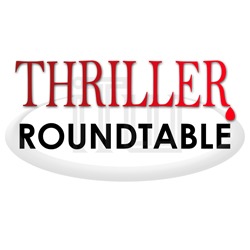

April 4th to 10th: “Story, character, dialogue and setting cliches-love them or hate them?”
 Cliches-love ’em or hate ’em? Join ITW members Tracy March, Adrienne Giordano, Julie Hyzy, Nancy Naigle, Tracey Devlyn and Jeff Sherratt as they discuss story, character, dialogue and setting cliches. It’s gonna be a thriller!
Cliches-love ’em or hate ’em? Join ITW members Tracy March, Adrienne Giordano, Julie Hyzy, Nancy Naigle, Tracey Devlyn and Jeff Sherratt as they discuss story, character, dialogue and setting cliches. It’s gonna be a thriller!
Tracy March writes about ethical dilemmas in unethical times. As a former pharmaceutical sales executive, Tracy draws inspiration from her experiences and encounters in the medical field and her love/hate relationship with politics. Look for GIRL THREE, Tracy’s debut thriller set in Washington, D.C., in June 2011. Tracy lives in Yorktown, Virginia, with her husband who works for NASA. They recently experienced two years living in D.C, where they discovered enough drama to inspire a lifetime of stories.
Adrienne Giordano writes romantic suspense, contemporary romance and women’s fiction. She is a co-founder of Romance University blog, is a member of Romance Writers of America, Windy City RWA, Kiss of Death, and RWA’s Women’s Fiction chapter. Adrienne’s books have been finalists in the 2008, 2009 and 2011 Linda Howard Award of Excellence contests, as well as other contests. Her debut romantic suspense, Man Law, will be released by Carina Press on July 4, 2011. Her second book, A Just Deception, will be available from Carina Press in September 2011.
Nancy Naigle is a native of Virginia, where she lives with her husband on their working goat farm. It should come as no surprise that her stories have a southern slant. Her debut novel, SWEET TEA AND SECRETS, will be out in May 2011.
Tracey Devlyn writes historical romantic thrillers (translation: a slightly more grievous journey toward the heroine’s happy ending). She’s a member of Romance Writers of America, International Thriller Writers, and the Hearts Through History, The Beau Monde, Women’s Fiction, Windy City and Kiss of Death Romance Writers of America chapters. Tracey accepted a three-book deal from editor Deb Werksman of Sourcebooks, Inc. in April 2010. Her first release, A Lady’s Revenge, will hit the bookstores in 2012.
Anthony and Barry Award winning author Julie Hyzy writes the White House Chef Mysteries and the Manor House Mysteries for Berkley Prime Crime. She just launched the harder-edged Playing With Matches under her pseudonym, N.C. Hyzy. This is Julie’s first attempt to offer an original novel in ebook form only. Julie lives in the Chicago area with her husband, three daughters, and two cats. For more information, visit her website.
Jeff Sherratt had two novels published by Echelon Press. The Brimstone Murders (2008) became the bestselling book of all time at that house. The second, Guilty or Else (2009) was nominated for the Left Coast Crime Panik Award. Jeff’s third novel in the Jimmy O’Brien series, Detour to Murder, was be released by ZOVA Books in October 2010. He is a past board member of Sisters in Crime/LA, and currently a member of Mystery Writers of America. Jeff is currently working on the next Jimmy O’Brien novel.
- LAST GIRL MISSING with K.L. Murphy - July 25, 2024
- CHILD OF DUST with Yigal Zur - July 25, 2024
- THE RAVENWOOD CONSPIRACY with Michael Siverling - July 19, 2024
